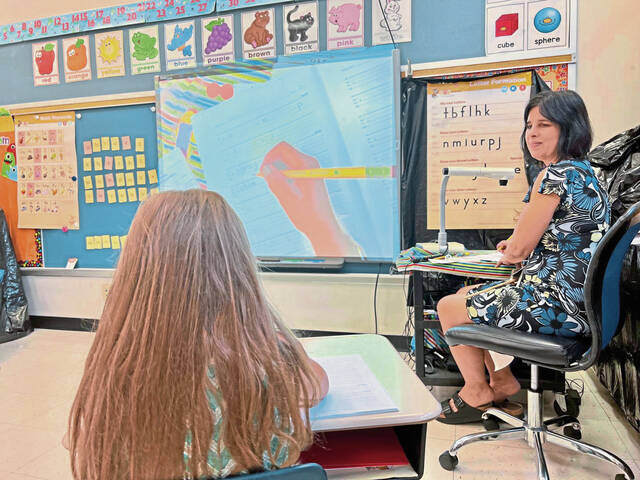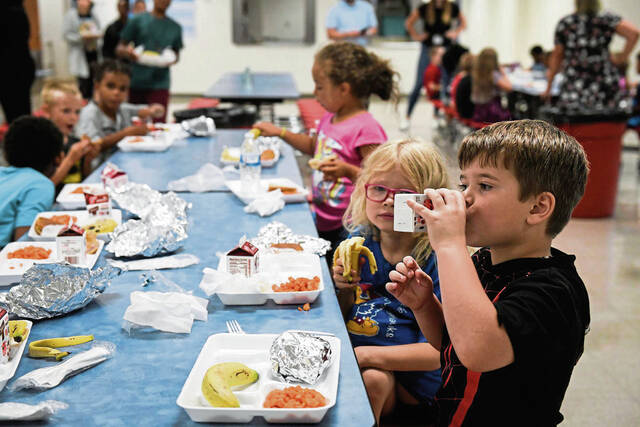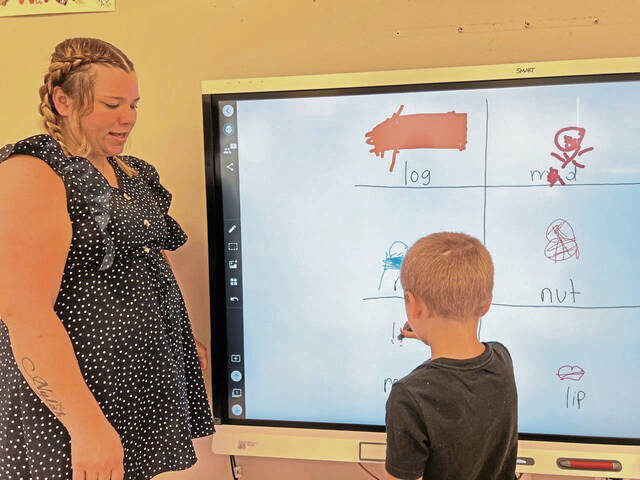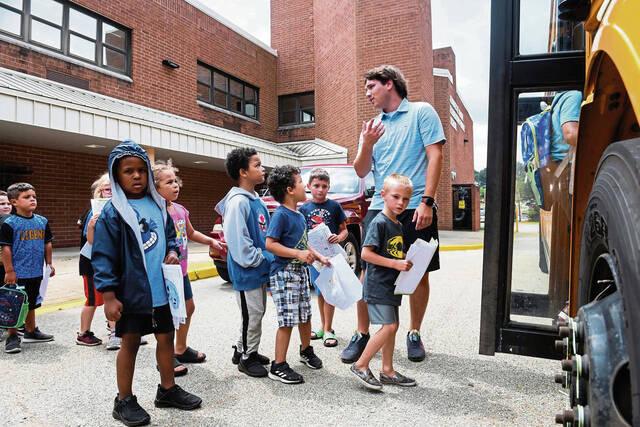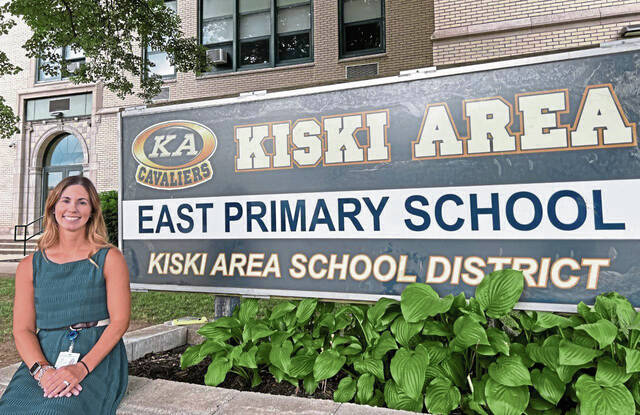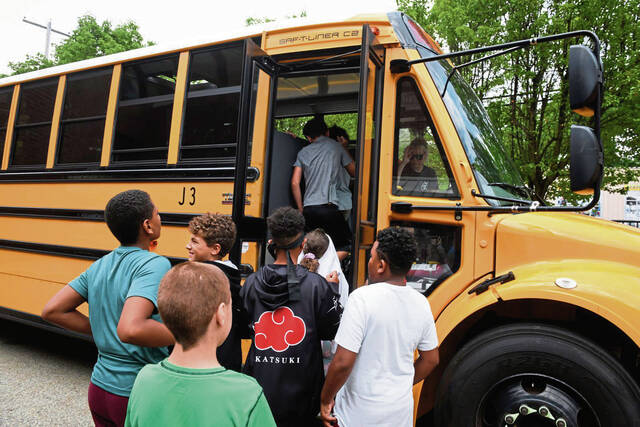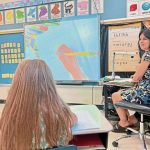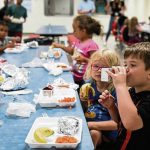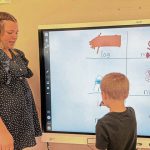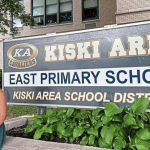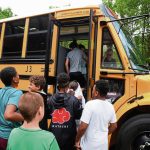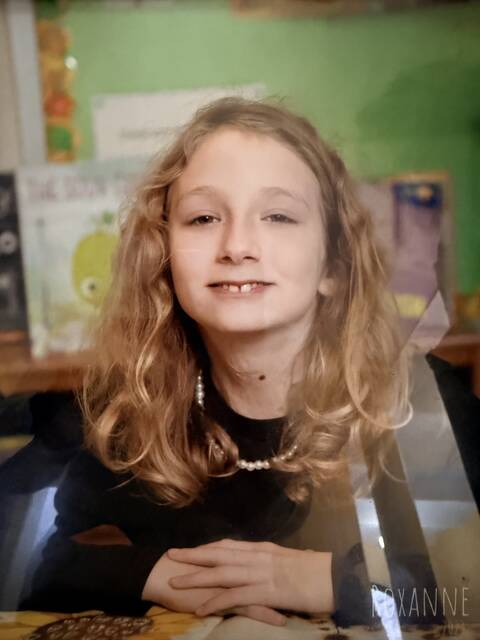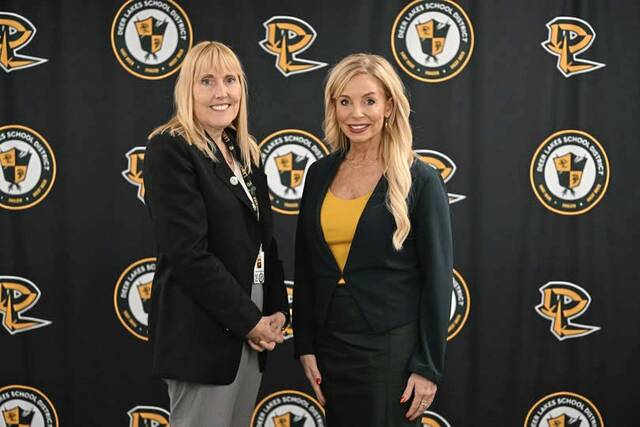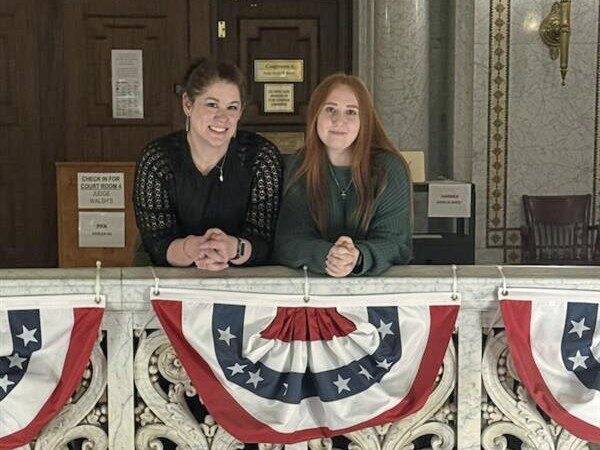A new summer learning program paid for with federal covid relief fund money in the Kiski Area School District is reinforcing math and literary skills to about 40 elementary students in grades 1-2.
The Go Cavs Summer Literacy & Math Camp is a free monthlong program implemented by Emily Mather, the newly hired Kiski Area director of curriculum and instruction.
The program is among a range of similar efforts implemented by school districts across the region, among them Highlands, Norwin and Jeannette City.
Mather, on the job since July 1, oversees federally funded programs in the district and said the $60,000 program is made possible by ESSER II funds distributed since 2020.
“The goal is to offer remediation to students with possible learning loss. They may need a little extra support to focus on skills they’ve learned over the last year,” Mather said.
Additionally, Mather said the program supports socializing and interaction with their peers.
Go Cavs stands for Great Opportunities for Children to Achieve Vital Skills.
Pat Marchand, principal of Kiski Area Primary East School, said the program is bridging the summer gap between grade levels for students who could benefit from some extra support.
“They’re able to start the new school year on track with their learning level,” Marchand said.
About 40 students in four classrooms at Kiski Area East Primary attend from 9:30 to 11:20 a.m. Mondays through Fridays.
The enrollment deadline was June 17, and Mather said the classes filled quickly.
“This program is based on learning loss and recovery from covid,” Mather said.
On Tuesday, Kiski Area teacher Cassidy Harnish worked one-on-one with her five students bound for the first grade.
Harnish said most of the enrolled students were selected from student performance data and are benefiting from the individualized attention she can give each student.
Participating students were not performing at the levels they were supposed to be by the end of the school year, Harnish said.
“We are trying to focus on the reading, spelling and math skills that were the key skills from kindergarten. We just want to give them a leg up so when they go to first grade they’re not behind their peers,” Harnish said.
Harnish said her daughter is enrolled in the program and is being taught by another teacher.
“She likes it. She leaves with a smile on her face each day. I’m already seeing the benefits of the program,” Harnish said.
Another similar summer program is scheduled to begin July 25 at Kiski Area Upper Elementary School.
KASD STREAM (Science, Technology, Research, Engineering, Arts and Math) will enroll students entering fifth or sixth grade and operate from 8 to 11 a.m. Mondays through Thursdays.
Mather said Kiski Area’s total allocation for ESSER II funds as of last week was $731,649.
A Kindercamp costing $60,000 will be offered to incoming kindergarten students in August. It’s also paid for with those funds.
Norwin summer learning
Norwin’s summer learning program is back and in its second year under ESSER II funding.
The curriculum offers to “gear up” and help students with certain skills, said Heather Newell, Norwin’s director of curriculum and assessment.
“We’re just really hoping it’ll just reinforce the skills necessary to jump into the next grade,” Newell said.
Last summer’s camp was “quite a large” one, Newell said. It offered enrichment and remediation opportunities.
Before the pandemic, Norwin offered a small elementary camp focused on literacy.
Highlands embraces creativity
More than 300 Highlands elementary students from grades K-8 are participating in the Camp Creativity program, offered this summer in two separate sessions at the Highlands Early Childhood Center, Highlands Middle School and Highlands Elementary School.
Catherine Russo, Highlands’ coordinator of curriculum, instruction, assessment and funding programs, said each session is three hours long in the mornings and are themed.
“The teachers apply strategies from project-based learning best practices where students are creating a product or presentation to demonstrate what they’ve learned,” Russo said.
Themes include Spanish, healthy meals, space exploration, cuisine, music and culture, solving mysteries with code breaking/cryptography and creating a positive school culture.
The program culminates in an event on the final day of camp that includes parents and family members being invited to observe project presentations, lunch and games.
Jeannette tackles learning loss
About 60 Jeannette City School District students in kindergarten through 12th grade are participating in a summer session with the help of allocations through the state’s ESSER funds, Superintendent Matt Jones said.
The district had a similar summer program in past years, and the ESSER funding helped officials revive it for this summer.
The grant is paying for staff and other resources.
“We know that at the end of the program” if it ultimately helped reverse learning loss with the help of baseline testing, Jones said.
The money also allowed the district to provide an after-school program for elementary students last school year that had a similar aim of reducing covid’s effects on learning.
That program could be continued for the upcoming school year if officials decide it is necessary. Jones said the additional opportunities for students are welcomed in the district as a way to counteract the impact of school closures and virtual learning days on education.


